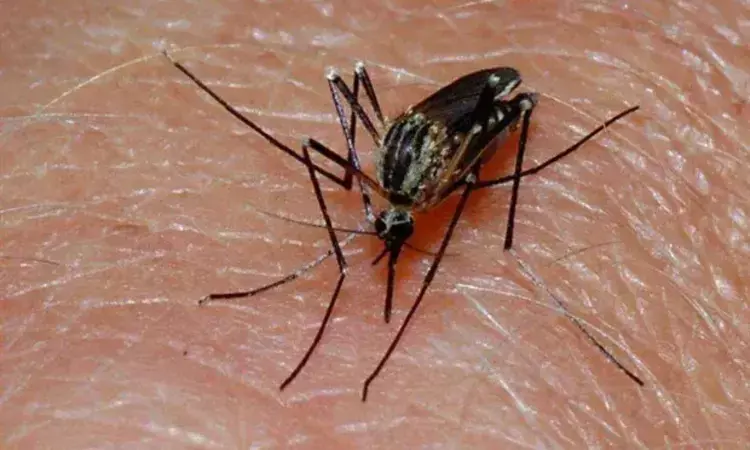- Home
- Medical news & Guidelines
- Anesthesiology
- Cardiology and CTVS
- Critical Care
- Dentistry
- Dermatology
- Diabetes and Endocrinology
- ENT
- Gastroenterology
- Medicine
- Nephrology
- Neurology
- Obstretics-Gynaecology
- Oncology
- Ophthalmology
- Orthopaedics
- Pediatrics-Neonatology
- Psychiatry
- Pulmonology
- Radiology
- Surgery
- Urology
- Laboratory Medicine
- Diet
- Nursing
- Paramedical
- Physiotherapy
- Health news
- Fact Check
- Bone Health Fact Check
- Brain Health Fact Check
- Cancer Related Fact Check
- Child Care Fact Check
- Dental and oral health fact check
- Diabetes and metabolic health fact check
- Diet and Nutrition Fact Check
- Eye and ENT Care Fact Check
- Fitness fact check
- Gut health fact check
- Heart health fact check
- Kidney health fact check
- Medical education fact check
- Men's health fact check
- Respiratory fact check
- Skin and hair care fact check
- Vaccine and Immunization fact check
- Women's health fact check
- AYUSH
- State News
- Andaman and Nicobar Islands
- Andhra Pradesh
- Arunachal Pradesh
- Assam
- Bihar
- Chandigarh
- Chattisgarh
- Dadra and Nagar Haveli
- Daman and Diu
- Delhi
- Goa
- Gujarat
- Haryana
- Himachal Pradesh
- Jammu & Kashmir
- Jharkhand
- Karnataka
- Kerala
- Ladakh
- Lakshadweep
- Madhya Pradesh
- Maharashtra
- Manipur
- Meghalaya
- Mizoram
- Nagaland
- Odisha
- Puducherry
- Punjab
- Rajasthan
- Sikkim
- Tamil Nadu
- Telangana
- Tripura
- Uttar Pradesh
- Uttrakhand
- West Bengal
- Medical Education
- Industry
New antimalarial prevents malaria during pregnancy more effectively but fails to improve birth outcomes

New antimalarial prevents malaria during pregnancy more effectively but fails to improve birth outcomes suggests a new study published in The Lancet
Intermittent preventive treatment in pregnancy (IPTp) with dihydroartemisinin–piperaquine is more effective than IPTp with sulfadoxine–pyrimethamine at reducing malaria infection during pregnancy in areas with high-grade resistance to sulfadoxine–pyrimethamine by Plasmodium falciparum in east Africa. We aimed to assess whether IPTp with dihydroartemisinin–piperaquine, alone or combined with azithromycin, can reduce adverse pregnancy outcomes compared with IPTp with sulfadoxine–pyrimethamine.
They did an individually randomised, double-blind, three-arm, partly placebo-controlled trial in areas of high sulfadoxine–pyrimethamine resistance in Kenya, Malawi, and Tanzania. HIV-negative women with a viable singleton pregnancy were randomly assigned (1:1:1) by computer-generated block randomisation, stratified by site and gravidity, to receive monthly IPTp with sulfadoxine–pyrimethamine (500 mg of sulfadoxine and 25 mg of pyrimethamine for 1 day), monthly IPTp with dihydroartemisinin–piperaquine (dosed by weight; three to five tablets containing 40 mg of dihydroartemisinin and 320 mg of piperaquine once daily for 3 consecutive days) plus a single treatment course of placebo, or monthly IPTp with dihydroartemisinin–piperaquine plus a single treatment course of azithromycin (two tablets containing 500 mg once daily for 2 consecutive days). Outcome assessors in the delivery units were masked to treatment group. The composite primary endpoint was adverse pregnancy outcome, defined as fetal loss, adverse newborn baby outcomes (small for gestational age, low birthweight, or preterm), or neonatal death. The primary analysis was by modified intention to treat, consisting of all randomised participants with primary endpoint data. Women who received at least one dose of study drug were included in the safety analyses. This trial is registered with ClinicalTrials.gov, NCT03208179.
Findings:
From March-29, 2018, to July 5, 2019, 4680 women were enrolled and randomly assigned: 1561 to the sulfadoxine–pyrimethamine group, 1561 to the dihydroartemisinin–piperaquine group, and 1558 to the dihydroartemisinin–piperaquine plus azithromycin group.
Compared with 335 (23·3%) of 1435 women in the sulfadoxine–pyrimethamine group, the primary composite endpoint of adverse pregnancy outcomes was reported more frequently in the dihydroartemisinin–piperaquine group and in the dihydroartemisinin–piperaquine plus azithromycin group
The incidence of serious adverse events was similar in mothers and infants across treatment groups. 12 (0·2%) of 6685 sulfadoxine–pyrimethamine, 19 (0·3%) of 7014 dihydroartemisinin–piperaquine, and 23 (0·3%) of 6849 dihydroartemisinin–piperaquine plus azithromycin treatment courses were vomited within 30 min.
Monthly IPTp with dihydroartemisinin–piperaquine did not improve pregnancy outcomes, and the addition of a single course of azithromycin did not enhance the effect of monthly IPTp with dihydroartemisinin–piperaquine. Trials that combine sulfadoxine–pyrimethamine and dihydroartemisinin–piperaquine for IPTp should be considered.
Reference:
Mwayiwawo Madanitsa, Hellen C Barsosio, Daniel T R Minja, George Mtove, Prof Reginald A Kavishe, James Dodd, et al.Effect of monthly intermittent preventive treatment with dihydroartemisinin–piperaquine with and without azithromycin versus monthly sulfadoxine–pyrimethamine on adverse pregnancy outcomes in Africa: a double-blind randomised, partly placebo-controlled trial. Open AccessPublished:March 10, 2023DOI:https://doi.org/10.1016/S0140-6736(22)02535-1
Keywords:
New, antimalarial, prevents, malaria, during, pregnancy, effectively, fails, improve, birth outcomes,The Lancet, Antibiotic, Azithromycin, Baby, Birth Weight, Child Health, Chlamydia, Dihydroartemisinin, Efficacy, Epidemiology, Global Health, Hygiene, Malaria, Medical Research, Medicine, Nausea, Piperaquine, Pregnancy, Prophylaxis, Research, Technology, Ultrasound
Dr. Shravani Dali has completed her BDS from Pravara institute of medical sciences, loni. Following which she extensively worked in the healthcare sector for 2+ years. She has been actively involved in writing blogs in field of health and wellness. Currently she is pursuing her Masters of public health-health administration from Tata institute of social sciences. She can be contacted at editorial@medicaldialogues.in.
Dr Kamal Kant Kohli-MBBS, DTCD- a chest specialist with more than 30 years of practice and a flair for writing clinical articles, Dr Kamal Kant Kohli joined Medical Dialogues as a Chief Editor of Medical News. Besides writing articles, as an editor, he proofreads and verifies all the medical content published on Medical Dialogues including those coming from journals, studies,medical conferences,guidelines etc. Email: drkohli@medicaldialogues.in. Contact no. 011-43720751


